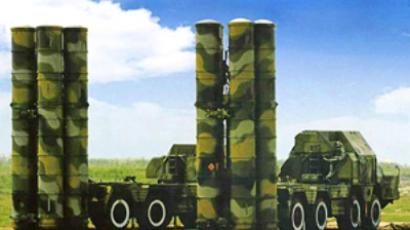Lucrative gambling damages Mideast peace talks
Israelis are continuing to be moved into West Bank settlements, angering Palestinians and severely hampering peace talks, and financial support for construction in the disputed territory comes from far and wide.
Hebron is the largest city in the West Bank. Home to nearly 200,000 Palestinians, it’s sacred to Jews, Muslims and Christians as the place where Abraham, Sarah, and their descendents are believed to be buried.
For Jews it is the second holiest city after Jerusalem. This is why 800 of them continue to live in the heart of the Old City despite the risk to their lives, and to the soldiers who protect them.
They can trace their ancestors back thousands of years and believe that a Jewish presence in Hebron is vital, but they also depend heavily on money raised from around the world.
David Wilder, spokesperson for the Jewish community of Hebron, explains its various needs:
“Most monies that come in are allocated to various projects. There’s a woman who gave us money for a playground outside here, and we were able to renovate it… We try to have very good medical care here. We have emergency medical crews and emergency medical equipment should it ever be needed.”
A lot of the money to Hebron comes from the Moscowitz Foundation.
Irving Moskowitz is an American Jewish doctor and millionaire. He uses the profits from a bingo hall and casino he owns in California to fund not only the Hebron settlement but also dozens of other Israeli settlements in the West Bank that the American administration has urged Israel to stop building.
Michael Cooper, a former deputy sheriff who used to patrol the streets of Hawaiian Gardens, one of the poorest towns in California where mostly Latino residents take their chances at Moskowitz’s bingo halls, shared his view of the situation:
“I am pretty sure that people don’t know that that’s where the money is going. I myself didn’t know at that point. I think they would be a bit surprised. I think people in America are naïve to the situation over here. I mean most people recognize that we have a large Jewish population in America. But most people don’t know about Palestinians at all,” he said.
But the StopMoskowitz foundation does. It was set up specifically to stop Moskowitz’s fundraising efforts.
It estimates that in the last twenty years he sent more than $160 million to Israel. Moskowitz, it says, is a real thorn in the side of any future possible Middle East peace deal.
Moscowitz did not respond to RT’s request for an interview.
Meanwhile, Palestinians in Hebron feel under siege and completely cut off from the heart of their city.
Hani Abu Sneneh was born in Hebron and has lived in the city all his life. For six years he’s been unable to pass through the streets that were part of his childhood.
“It is very, very difficult to reach our school there. The children still go, but it takes them a long time to get there. I remember Netanyahu, the Israeli prime minister, from the last time he was in power. He didn’t do anything then – and he won¹t do anything now to help the situation,” he believes.
Netanyahu says Israel will not build any new settlements, but can still expand existing ones. His message might pacify many in the international community, but to people on the ground it is clear Moskowitz will continue sending money – and Palestinians will bear the brunt of it.













